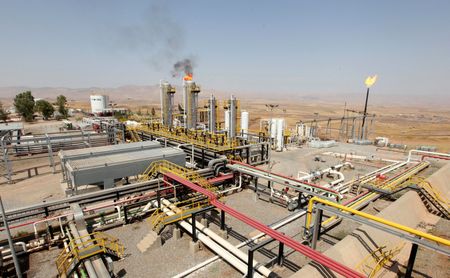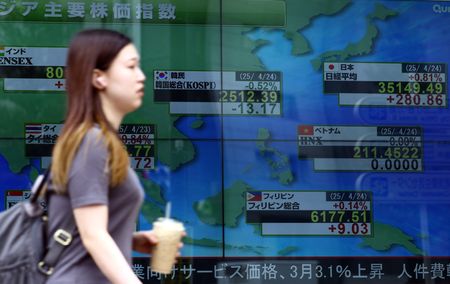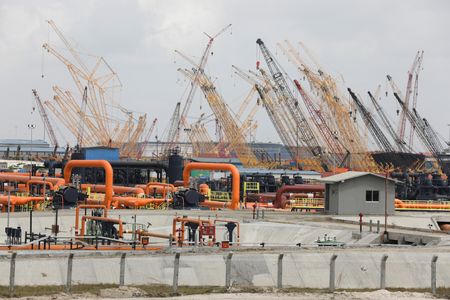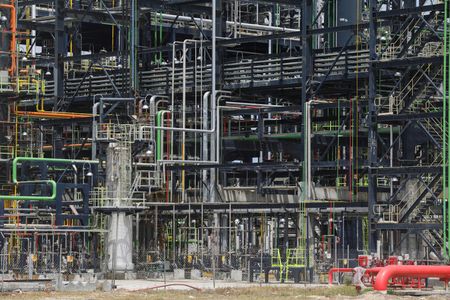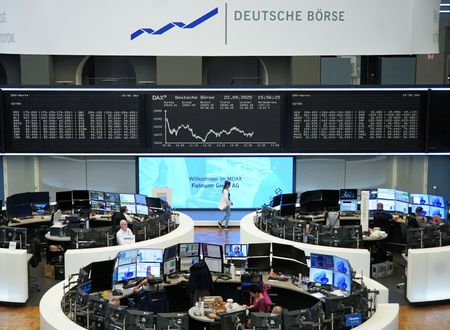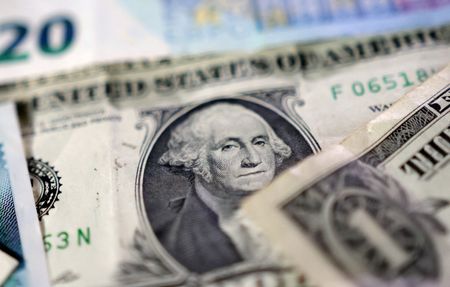By Florence Tan and Jeslyn Lerh
SINGAPORE (Reuters) -Oil prices fell on Monday after Iraq’s Kurdistan region resumed crude oil exports via Turkey over the weekend and as OPEC+ plans another oil output hike in November, adding to global supplies.
Brent crude futures fell 34 cents, or 0.5%, to $69.79 a barrel by 0330 GMT, after settling at the highest since July 31 on Friday. U.S. West Texas Intermediate crude was trading at $65.29 a barrel, down 43 cents, or 0.7%, giving back most of Friday’s gains.
“Ongoing fears of production increase are limiting gains, but a tight near term outlook has crude prices in a vice as the trading week begins,” said Michael McCarthy, CEO of investor platform Moomoo Australia and New Zealand.
Crude oil flowed on Saturday through a pipeline from the semi-autonomous Kurdistan region in northern Iraq to Turkey for the first time in 2-1/2 years, after an interim deal broke a deadlock, Iraq’s oil ministry said.
The agreement between Iraq’s federal government, the Kurdistan regional government (KRG) and foreign oil producers operating in the region will allow 180,000 to 190,000 barrels per day of crude to flow to Turkey’s Ceyhan port, Iraq’s oil minister told Kurdish broadcaster Rudaw on Friday.
The U.S. had pushed for a restart, which is expected to eventually bring up to 230,000 bpd of crude back to international markets at a time when OPEC+ is boosting output to gain market share.
The Organization of the Petroleum Exporting Countries and their allies, or OPEC+, will likely approve another crude production hike of at least 137,000 bpd at its meeting on Sunday, as rising oil prices encourage the group to try to further regain market share, three sources familiar with the talks said.
However, OPEC+ has been pumping almost 500,000 bpd less than its targets, defying market expectations of a supply glut.
“As OPEC prepares to further draw down its spare capacity, the risk of an October geopolitical surprise continues to rise,” said analysts at RBC Capital Markets.
“While the dominant summer narrative has been the Q4 2025 oversupply story, market participants are starting to factor in the accelerating wake-up risk posed by the ongoing Russia and Iran conflicts,” RBC analysts said.
Brent and WTI rose more than 4% last week, their biggest weekly gains since June, as Ukraine’s drone attacks on Russia’s energy infrastructure cut the country’s fuel exports.
Russia pounded Kyiv and other parts of Ukraine early on Sunday in one of the most sustained attacks on the capital since the full-scale war began.
Meanwhile, the United Nations has reinstated an arms embargo and other sanctions on Iran over its nuclear programme, following a process triggered by European powers that Tehran has warned will be met with a harsh response.
(Reporting by Florence Tan and Jeslyn Lerh; Editing by Jamie Freed and Stephen Coates)

